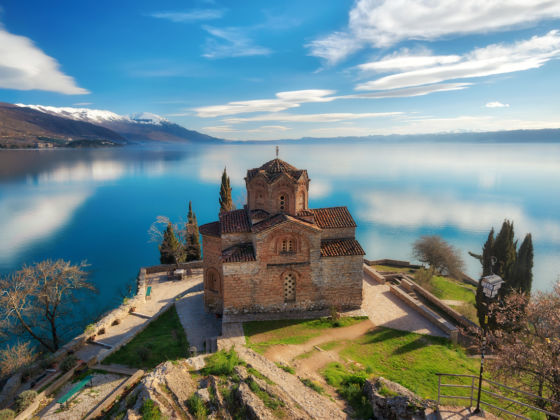What’s in a name? Apparently, a lot. Relations between the Republic of Macedonia and Greece have been tense since the dissolution of Yugoslavia in 1991. Greece took issue with the name “Macedonia”, as it has its own regions of the same name, and considers it part of its national history. Greece’s opposition to the name has even caused them to block Macedonia’s entry in the European Union or NATO. Now, it seems, all of that is in the past. On Tuesday, the two nations came to an agreement — that the former Yugoslav republic will be called the Republic of North Macedonia. According to Radio Free Europe/Radio Liberty, Greek Prime Minister Alexis Tsipras is “happy because we have a good deal which covers all the preconditions set by the Greek side.”


A statement from NATO Secretary-General Jens Stoltenberg praises the diplomacy that took place to settle this dispute, and says that “this will set Skopje on its path to NATO membership And it will help to consolidate peace and stability across the wider Western Balkans.” Indeed, the issue hasn’t been confined to houses of government. In February more than 140,000 Greeks marched to parliament in Athens for a “Macedonia is Greece” rally, claiming that the name is “in our soul.”
The heart of the issue is steeped in over two thousand years of history. NPR’s Joanna Kakassis reported that since a northern province of Greece, called Macedonia, is considered the cradle of civilization and home to Alexander the Great, “Greece considers Macedonia a non-negotiable part of its history.” The former Yugoslav state to the north, however, also considers Alexander part of its local identity, as he incorporated its land into his vast empire.
The dispute brings to the forefront the importance of cultural history to a nation’s identity. The question of who “owns” Alexander the Great might seem trivial on its face, but ownership of Alexander suggests ownership of “Macedonian” history, which has heavy cultural implications even for 21st-century countries. For a relatively young country like Macedonia (or the Northern Republic of Macedonia), its people are eager to carve out a distinct national identity from the other former Yugoslav states. The Macedonian name — and its geographic association with Alexander — was their key to doing it.
It is generally accepted that the new compromise will bring more stability to the region, though protests did break out last week in advance of the decision, in both Greece and Macedonia.
H/T: NPR